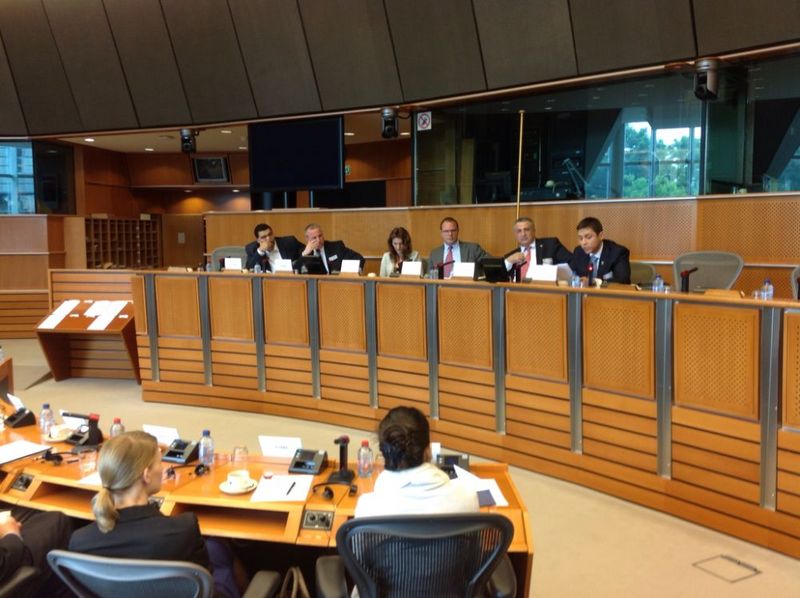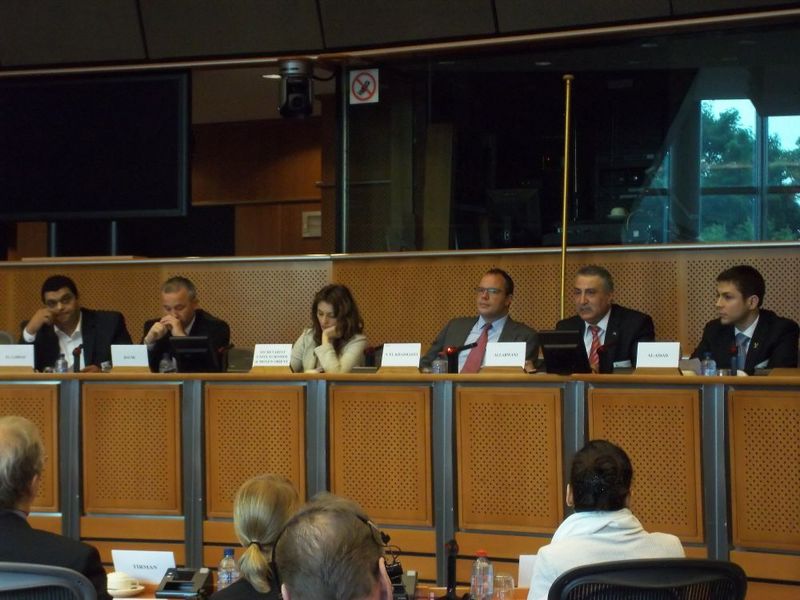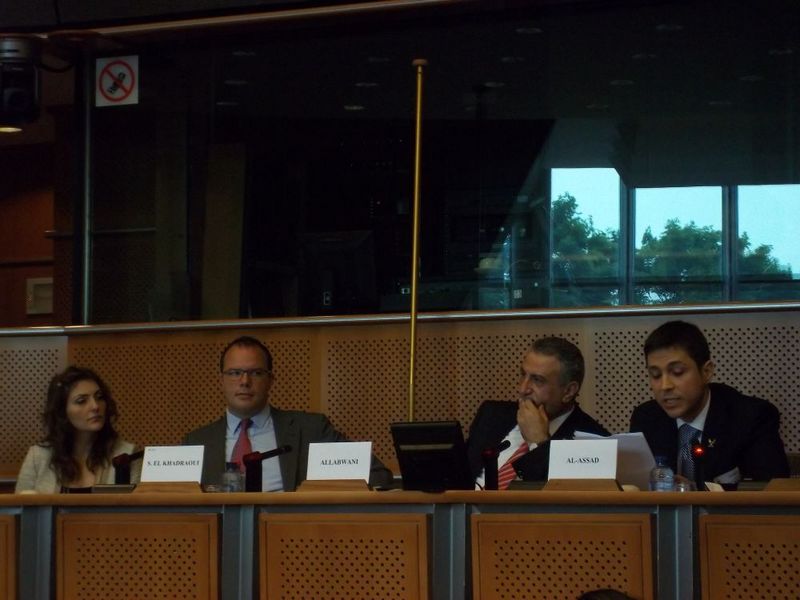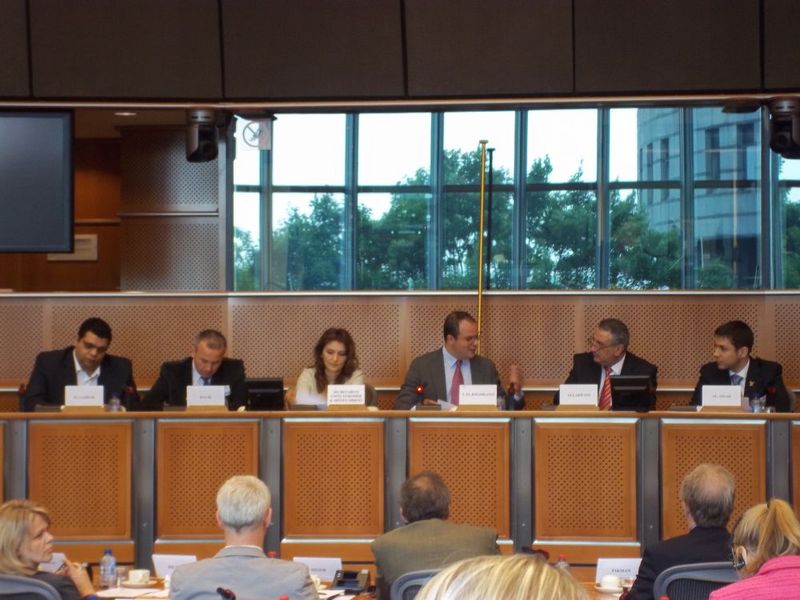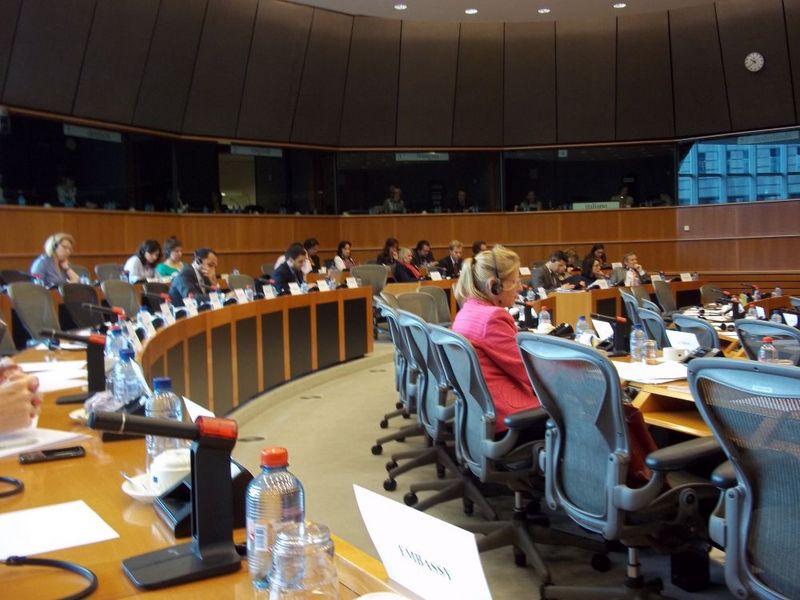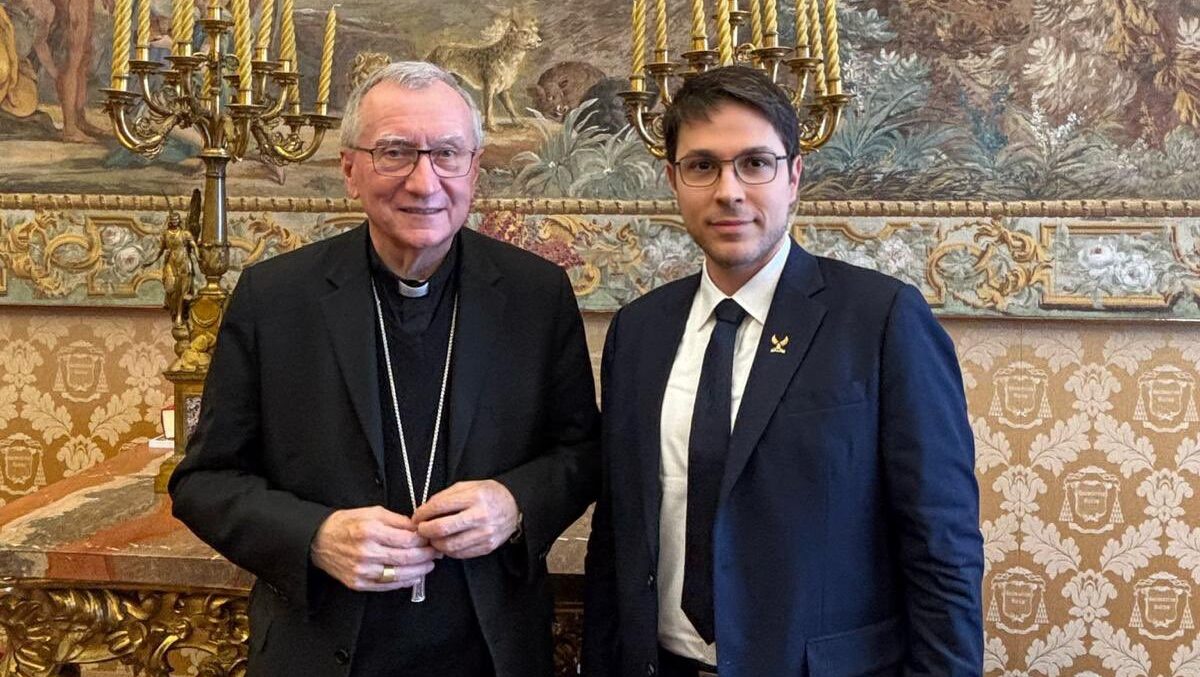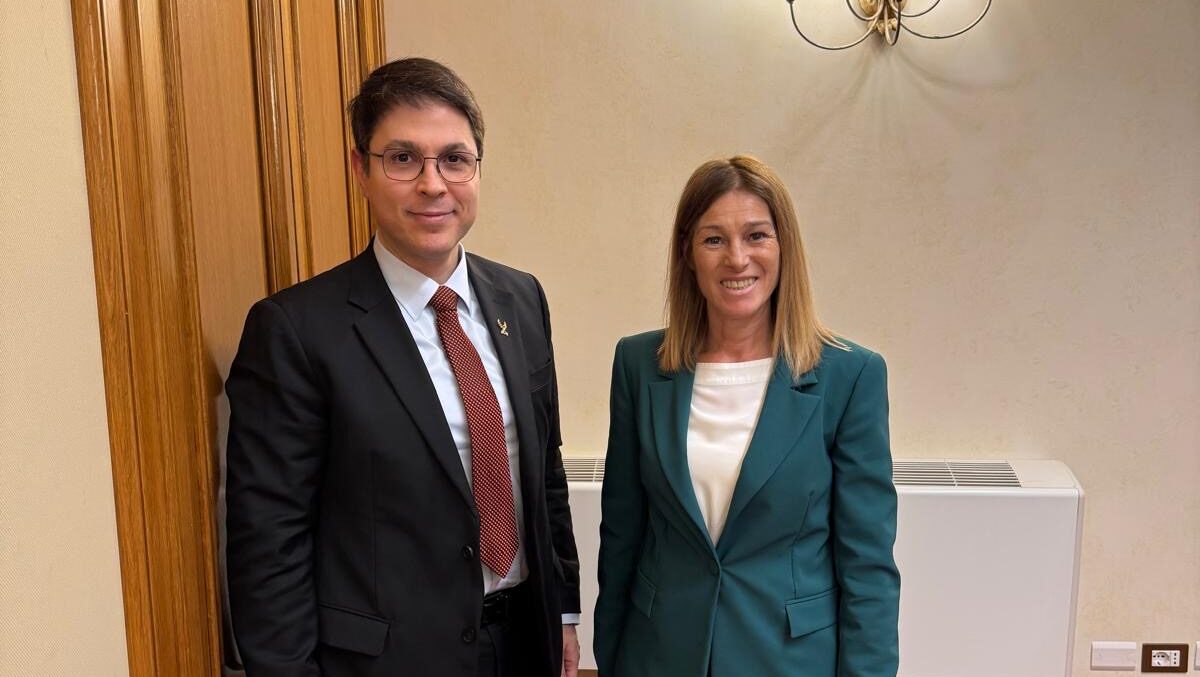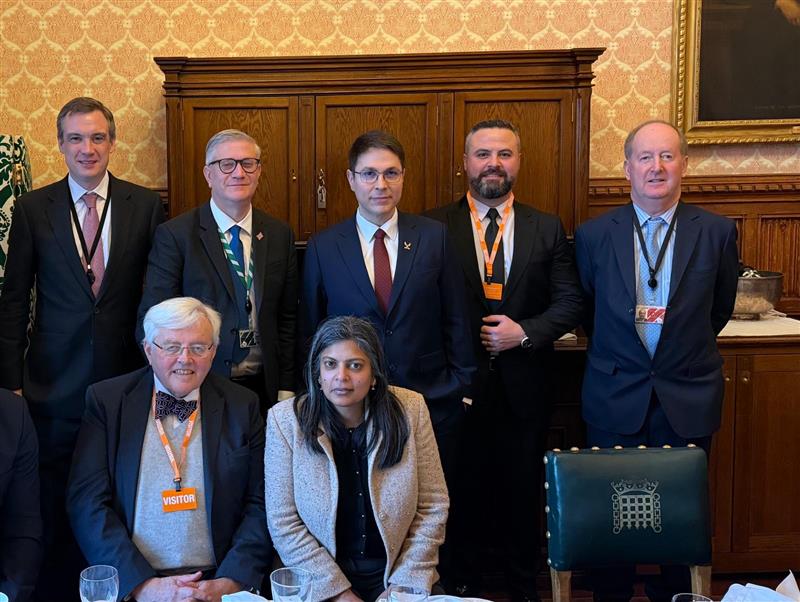Ribal Al-Assad, Director of the ODFS, this week addressed the Mashreq Delegation in the European Parliament on the crisis in Syria and called for a peaceful united opposition, which works for a peaceful inclusive and democratic transition.
Ribal made the following speech:
Last week, Herve Ladsous, the U.N. Under-Secretary-General for Peacekeeping Operations was asked whether Syria was in a state of civil war.
“Yes, I think we can say that,” he answered.
It is with nothing but sadness that I can confirm I have been predicting this for years.
Two years ago I was fortunate to spend time with Antonyia Parvanova …
… and Sajjad Karim immediately after he and this delegation had visited Syria.
This was the first opportunity I had to discuss with your members my vision for freedom, democracy and the rule of law in Syria …
… and to set-out my fears of what might be about to unravel …
… long before the arrival of the over-optimistically labelled ‘Arab Spring’.
I have travelled the world speaking on this subject …
… and as recently as three months ago …
… my worries that the conflict was becoming a hub for a more apocalyptic regional war were met with various degrees of scepticism.
No longer.
Ambassador Chinmaya R. Gharekhan’s article in Monday’s Calcutta Telegraph …
… set-out the three-tiered nature of the conflict …
… internal, regional and global …
… paraphrasing a speech I gave in Delhi three months ago.
The tentacles of war are already spreading across Syria’s borders.
El Pais reported last week how Spanish jihadists have travelled through the eastern provinces of Turkey where they coordinated with young Moroccans looking to join the fray.
Meanwhile, Al Jazeera in Tripoli confirmed an attack on a British consulate vehicle in Benghazi …
… with leaflets found at the scene from the Brigades of Sheikh Omar Abdel-Rahman …
… an Egyptian extremist currently serving a life sentence in the US.
Jordanian militants have been attempting to cross-over into Syria …
… whilst the Kuwaiti daily Al-Qabas has reported that scores of Kuwaitis are pouring into Syria to fight alongside the Free Syrian Army.
This is, of course, depressingly familiar.
The chaos in Afghanistan and Iraq acted like a magnet for Islamist extremists from across the region and beyond.
And it important for the world to recognise the mistake of treating this as a case of a ‘Good’ in the form of the opposition against the ‘Evil’ regime.
Yes, the regime has continued to behave barbarically …
… but the opposition has become a catch-all for violent Islamists and Jihadists.
The SNC opposition sits at the heart of this problem …
… and its own sectarian agenda has led directly to its lack of unity and success.
It claims to represent the Syrian people …
… but 45% of those people represent ethnic minorities …
… many of whom remain loyal to the regime despite everything …
… and who make up a significant number of the one million refugees currently taking flight from the country.
This is no coincidence, because, as I am sure Mr Labwani will illustrate in more detail …
… the SNC’s raison d’être is diametrically opposed to the best interest of so many of our people.
Last week we read reports of 9,000 Christians from the city of Qusayr seeking refuge after an ultimatum from Abdel Salam Harba, a local military chief of the armed opposition,.
Furthermore, a ¬report by Dam Press claims that opposition forces are being trained inside Turkey to use chemical weapons.
These weapons have been acquired from Libya …
… and it is claimed that they plan to commit atrocities inside Syria to pin on the regime.
What makes this even more sickening …
… is that we are not just dealing with rogue extremist groups …
… but with state-backed terrorism.
I have gone on record many times quoting Jihadist rhetoric on State Sponsored TV Saudi-owned WISAL and SAFA satellite TV stations …
… exhorting fundamentalists to violence …
… particularly against Alawite and Christians.
Despite Thursday’s fatwa banning Saudis from fighting in Syria without government approval … clerics have deliberately incited sectarian hatred whilst investing petro dollars to accelerate the cross-border arms flow.
Previously I have focused on Saudi and Qatari influence and funding …
… but in the last few days, Tunisian Imams have been asked to tone-down similar vitriol.
The result has been a growth in the size and extremist nature of the opposition armed forces … who have already been cited by Human Rights Watch.
A new report in Germany’s leading daily, the Frankfurter Allgemeine Zeitung, claims that the dreadful Houla massacre was actually committed by anti-Assad Sunni militants against Alawi and Shia minorities.
Last week, William Hague spoke in Westminster of “credible reports of human rights abuses and sectarian attacks by armed opposition fighters …
… and terrorist groups affiliated to Al Qaeda committing attacks designed to exacerbate the violence.”
This endorsed much older claims made by James Clapper, the U.S. Director of National Intelligence
This is a terrifying prospect.
But we should not be misled into understating the strength of the regime …
… which has significant international backing of its own.
Syria’s ‘alliance of shared enemies and goals’ with Iran is tightening …
… and on the 8th June, Brigadier General Massoud Jazaeri of Iran’s Revolutionary Guard noted that:
“A conflict in Syria will engulf the region and its main victims will be the people of Syria themselves.
The Zionist regime and the interests of the enemies of Syria are all within range of the resistance fire.”
No wonder the world is worried about Syria’s arsenal of chemical weapons falling into the hands of extremists …
… particularly when she believes that arsenal is the largest on the planet.
And the regime is not just backed by Iran.
Russia and China, whose alliance grows ever stronger (as witnessed in joint naval operations in the South China Sea) …
… are posturing over Syria …
… not least as a proxy battleground for their rivalry with the US and NATO.
Six days ago they announced that they want Iran to be part of Kofi Annan’s proposed ‘contact group’ for Syria …
… and this followed their much-publicised UN veto …
… April’s arrival of a Russian guided-missile destroyer at the port of Tartus has been followed by the arrival of further naval ships this week …
… in addition of Moscow’s supply to Syria of three million gas marks, shore to sea and surface to air missiles.
Anatoly P. Isaykin, the general director of Russia’s state-controlled arms provider, Rosoboronexport commented on Friday:
“This is not a threat, but whoever is planning an attack should think about this.”
Meanwhile, Vitaly Churkin, the Russian Ambassador to the United Nations …
… has slammed Saudi Arabia and Qatar for funding and supplying weapons to armed Syrian opposition.
This powerful pro-regime axis spreads directly from Damascus, through Tehran and onto Moscow and Beijing.
The opposition, focused around Ankara …
… draws support from the Gulf States and Washington.
Jordan has recently attributed the United States with boosting its nuclear security …
… and has hosted large-scale NATO war games.
A senior Free Syrian Army representative met last week with the US ambassador to Syria at the US State Department complete with strategic military maps.
And meanwhile, Turkey and Iraq accuse each other menacingly of sectarian rhetoric …
… as the international fault lines reflect the deeply ingrained Sunni-Shia schism across the Arab World.
It could be argued that these global machinations make the SNC an irrelevance.
I disagree.
The only hope for my country is an inclusive, peaceful opposition …
… working on behalf of all our people …
… with an end goal of democratic representation for all.
But neither my own Organisation for Freedom and Democracy in Syria …
… nor the National Democratic Council of Syria …
… received an invitation to any of the three Friends of Syria conferences …
… despite increasingly urgent requests.
.
I can only hope that the new leader of the SNC, Abdul Baset Sayda …
… with his Swedish citizenship and Kurdish background …
… will herald a new approach and start to work alongside the democratic opposition …
… but I fear that cosmetic change will not change the SNC’s essence …
… particularly as he has previously been criticised by Kurdish groups for marginalising their interests within the SNC in favour of those of the Muslim Brotherhood.
It will be fascinating to see what he can achieve in the final two weeks of his allotted month of change.
As I am sure Mr Labwani will testify …
… the SNC has a history of appointing leaders to create a liberal façade …
… and I fear that this is just another example …
… and yesterday’s reports of the formation of a new ‘Joint Action Committee inside Syria confirm that the SNC is ceasing to hold sway amongst Syrians.
The JAC’s founder Hussein Sayed put it in a nutshell:
“We do not believe that the Syrian National Council is able to be the leadership of the opposition.”
In the meantime, the polarisation of Syria and the region continues.
Hilary Clinton met the Turkish Foreign Minister Ahmet Davutoglu last week and suggested that “the time has come for the international community to unite around a plan for post-Assad Syria.”
I could not agree more.
Who will represent the 45% minorities within our population in the new regime?
Who will maintain law and order?
Who will oversee the transition to democracy?
I say with certainty that it will not be the SNC.
As we have seen to the cost of so many countries in the region, regime change is the easy part.
The problem is what follows.
The British foreign office now advises its citizens not to travel to Libya – much of which is lawless.
The Egyptian people have been left with a choice between Ahmed Shafiq, a Mubarak general and Mohammed Morsi, representing the political front of the Muslim Brotherhood.
This is not to say that I do not yearn for change in Syria.
I condemn the regime and its recent well-publicised massacres.
The regime is corrupt, conflicted and violent.
But the only hope for Syria and it’s peaceful majority is a peaceful transition rather than a violent revolution.
The Annan plan has failed so far …
… but despite the withdrawal of UN observers it is not yet dead …
… and Monday’s call from Presidents Obama and Putin for an “immediate” end to the conflict was a positive sign …
… as was the Russian President’s statement that:
“Regime change, if it happens, must happen only by constitutional means …
… peace comes to the country and bloodshed stops.”
Diplomacy must be given further opportunity.
Hardeep Singh Puri, India’s Permanent Representative to the United Nations …
… fears that a military approach will result in “havoc” …
… as it would lead to aiding and abetting of terrorism across the entire region.
I could not agree more.
Peace is a long-shot.
But a peaceful and united opposition provides Syria’s only chance.
